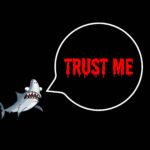Does your business add any meaning to life?
“Today, a new generation of renegades – companies as seemingly different as Walmart, Nike, Google, and Unilever, for example – are thriving not in spite of but by rebelling against the tired, toxic orthodoxies of industrial age capitalism. Their secret? Haltingly, imperfectly, often messily, never easily, they’re learning to become twenty-first-century capitalists. Maybe, just maybe, call it economic enlightenment: today’s radical innovators are vanguards, voyaging past the edge of the drab, lackluster world of business as usual – and exploring a terra incognita rich with possibility, where higher peaks of prosperity, built on stronger, thicker bedrock, can be glimpsed”
UMAIR HAQUE, The New Capitalist Manifesto (2011)
Things are changing. The world of business and management is going through a discontinuity. What we thought were its basic paradigms are out of the window. It seems the very idea of why businesses exist, what they are here to do, needs a reboot.
A new group of radical thinkers is describing why business as usual is broken, and what we might have to do to fix it. Leading the pack is Umair Haque, an iconoclastic blogger whose new book pulls no punches when he describes where our cherished ideals of capitalism founded on big business have led us.
Consider Haque’s example. How much does a fast-food hamburger cost? Around $3 on average. That’s why it sells all over the globe in huge numbers. But what if you factor in the costs to the environment of growing the feed that sustains the cattle herds, or the pollution costs of packaging? What if you count the subsidies that sustain the beef, water and land that goes into burgers? What if you add the toll of added healthcare costs to society caused by obesity? Add all that up and you may get a figure closer to $30 per burger. The missing $27 is hidden, paid for by taxpayers and societies and nature, but not borne by the producers and consumers of burgers. If everyone had to buy burgers for $30 each, consumption would plummet.
Fast foods are just one industry. As the author points out, banking has produced its share of “bads” (as opposed to goods). What else would you call repackaged toxic loans but the financial industry’s equivalent of a cheap but ultimately harmful burger with all its true costs hidden away? Cheap oil fuels the decades-old boom in petrol-driven vehicles; but if you took away the subsidies and added in the environmental costs, you might have to add another $4 per gallon. All these products are packaged and priced to sell in great volumes – yet they probably bring net harm to the world.
So ask yourself: does your company and its products create what Haque calls ‘thin’ value – artificial, unsustainable shareholder value that does wider harm? Or are you interested in ‘thick’ value – genuine economic return that takes account of a full spectrum of costs, generated from goods that actually matter and produce benefits for all stakeholders? Few would pass the test convincingly.
Read Haque’s excerpt and you will see that he describes things in revolutionary, poetic terms. He is undoubtedly a radical who wants to see business reinvented. This is not the language CEOs are used to – yet many free thinkers amongst them, not least those who lead some of our largest corporations, are paying attention. So will we, as I intend to return to this book several times in the weeks and months to come. For now, consider the central questions. Do your products produce meaningful returns to anyone other than your shareholders? Do they do good rather than harm? Is the business model on which they are founded sustainable? Is there a better, more meaningful way of doing what you do – and do you have the courage to look for it?

Buy Sunny Bindra's new book
The X in CX
here »
Popular Posts
- Where are you rushing to—your funeral?June 29, 2025
- The map will appear—once you start walking.July 6, 2025
- How to spot a real thinkerJune 15, 2025
- Built the app, forgot the flowJune 22, 2025















